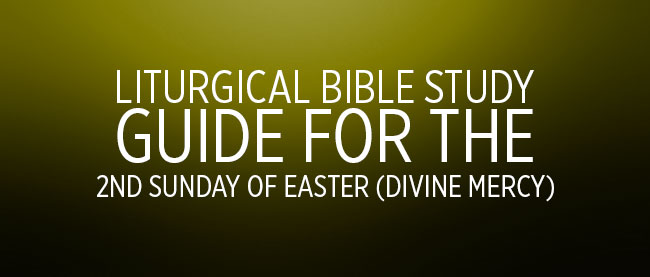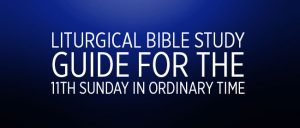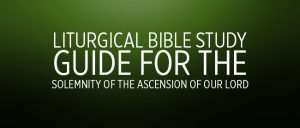Introduction
On April 30, 2000, His Holiness John Paul II, in response to the wishes of the Christian
faithful, declared that “the 2nd Sunday of Easter henceforth throughout the Church will also be called Divine Mercy Sunday.” The desire for this celebration was expressed by Our Lord to Saint Faustina as can be found in her Diary (§699):”… My daughter, tell the whole world about My inconceivable mercy. I desire that the Feast of Mercy be a refuge and shelter for all souls, and especially for poor sinners. On that day the very depths of My tender mercy are open. I pour out a whole ocean of graces upon those souls who approach the fount of My mercy. The soul that will go to Confession, and receive Holy Communion on this day shall obtain complete forgiveness of sins and punishment…”
Gospel – John 20:19-31
Having just heard of Jesus’ appearance to John when he witnessed the heavenly
liturgy, we now hear of Jesus’ first appearance to the Apostles.
1st Reading – Acts 5:12-16
During the Easter season the Catholic and Lutheran lectionaries do not have an Old
Testament reading, but instead have a reading from the Acts of the Apostles. The Episcopal lectionary offers a choice of a reading from the Acts of the Apostles or an Old Testament reading.
For our first reading today we hear that the apostles have begun to minister to the
people in the same way that Jesus had done. They have found that they are empowered by the Holy Spirit to bring wholeness (health) to people in the name of Jesus. Immediately preceding today’s reading is the dreadful Ananias and Sapphira event where a husband and wife sold a piece of property and brought only a portion of the proceeds to the apostles while telling them that all the proceeds were there. Peter confronts them, telling them that they have not lied to the Apostles, but to God and they are immediately struck dead.
2nd Reading – Revelation 1:9-11a, 12-13, 17-19
The Book of Revelation is a unique book in the New Testament in that it narrates
extraordinary visions and auditions that concern things unseen and unheard by human beings. It is the only prophetic book in the New Testament. In the prologue of this book the author is referred to simply as God’s servant. He does not call himself an apostle or a disciple of Jesus. He does not even claim the title of prophet. He authorizes his message by describing its heavenly origin. The earliest Christian writer to comment on the authorship of Revelation is Saint Justin Martyr (ca. A.D. 160); he identifies the author as John, one of the apostles of Christ. Irenaeus (ca. A.D. 180-190) is the earliest writer to say that both Revelation and the fourth gospel were written by John, the disciple of the Lord.
The Book of Revelation is primarily a prophecy of the destruction of Jerusalem by
the Romans in September of A.D. 70. This fact alone places Saint John’s authorship
somewhere prior to this time. The passion, death, resurrection and ascension of our Lord marked the end of the Old Covenant and the beginning of the New. The apostles were commissioned to deliver the message of Christ and, when this message had been delivered, God sent the Edomites and the Roman armies to destroy the last remaining images of the Old Covenant. The number forty, in Scripture and Hebrew numerology, is indicative of change. If Jesus was crucified in the year thirty then, forty years later, in the year seventy, the last images of the Old Covenant, the Temple and the Holy City, were removed; the Old Covenant has passed away and has been replaced by the New.





